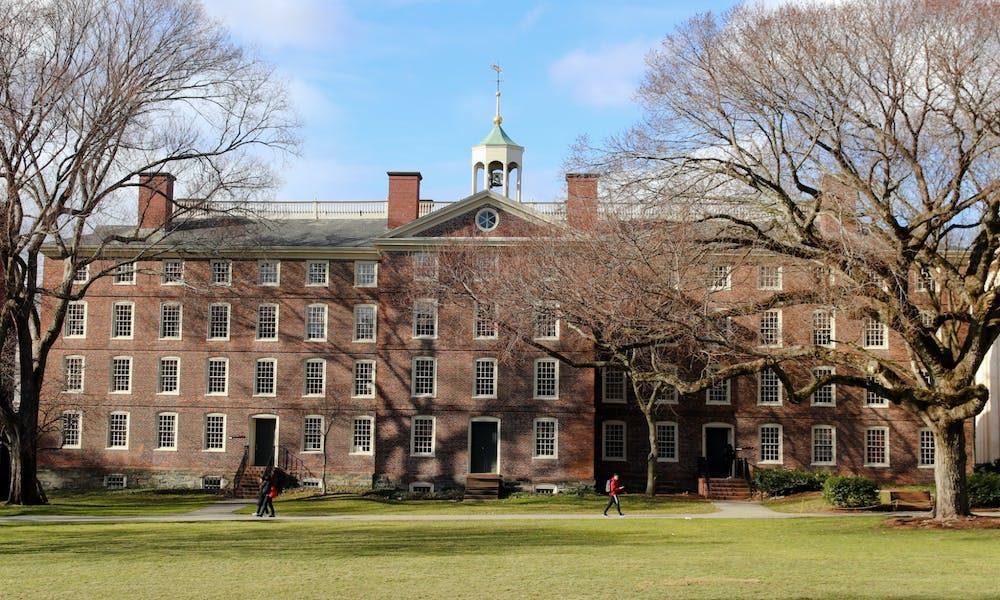During the Brown Corporation’s meetings held last week, members of the University’s highest governing body approved a 4.75% tuition increase and a 4.5% salary pool increase. President Christina Paxson P’19 P’MD’20 wrote in her summary that members felt “moved” by student protests for divestment.
Beyond announcing tuition increases, faculty compensation pool changes and gift acceptances, in this year’s meeting summary Paxson also addressed student demands for divestment.
“Members of the Corporation shared how moved they were by the conviction of the activists holding protests throughout the meetings, including the group of students advocating for divestment during a days-long protest that ended Friday evening,” Paxson wrote, referring to the weeklong hunger strike urging the Corporation to consider a divestment proposal.
The hunger strike culminated in a day of protests on Friday, when strikers and other students chanted outside buildings and rooms where Corporation members were gathering.
Paxson wrote in her message that divestment proposals should be submitted to the Advisory Committee on University Resource Management, which makes divestment recommendations to the president, according to the University’s existing procedure. This echoes Paxson’s previous statements released during the strike and past demonstrations.
In 2020, the Advisory Committee on Corporate Responsibility in Investment Policies — ACURM’s predecessor — published a report recommending that the University divest from “companies identified as facilitating human rights violations in Palestine.” In her summary, Paxson reiterated her finding that the 2020 report lacked “rigorous analysis and research” as well as “the requisite level of specificity in regard to divestment.”
Paxson further wrote in February’s Corporation update that “any proposal seeking to use Brown’s endowment to ‘take a side’ on contested political issues would not be approved, as Brown’s financial assets serve the entire University community.”
The approved 4.75% increase in undergraduate tuition and fees — the same as last year — comes with a projected increase in undergraduate financial aid between roughly 6% and 7%. A budget presented to the Corporation in May will “solidify financial aid resources across master’s, doctoral and all groups of students,” the summary reads.
The 4.5% approved employee salary pool increase is the highest in 16 years. Factors taken into consideration in the increase included recruitment and retention, cost of living and inflation, Paxson wrote.
The Corporation accepted over $55 million in gifts and pledges made since October, which were used to establish several new endowed professorships in athletics, biology and philosophy, politics and economics. Trustees and fellows also approved the appointment of faculty to named chairs in emergency medicine, psychiatry and diagnostic imaging.
Other Corporation discussions covered the role of generative artificial intelligence in academics, the planned Integrated Life Sciences Building in the Jewelry District and the new indoor turf facility in the Erickson Athletic Complex.

Anisha Kumar is the senior editor of community and standards of The Herald's 135th editorial board. She previously served as a section editor covering University Hall and international student life. She is a junior from Menlo Park, California concentrating in English and Political Science who loves speed-crosswording and rewatching sitcoms.





